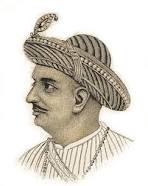 Koppala, Jan 27: A miscreant has been arrested by the police in Koppala town of Karnataka for posting derogatory comments on Tipu Sultan on social media.
Koppala, Jan 27: A miscreant has been arrested by the police in Koppala town of Karnataka for posting derogatory comments on Tipu Sultan on social media.
According to the police, Manjunath Mudgal, an ITI student, had posted pictures of Tipu Sultan on his Facebook account and passed derogatory remarks.
He had also defaced images of the Muslim ruler on his account. The incident was brought to the notice of the police by a few local residents.
Fearing a law and order situation, the police arrested Manjunath. He was asked to remove all the controversial pictures from his Facebook account. The police have registered a case.





Comments
Mr. Manohar Mangalore.
If someone publish your grand father's photo and write against his character and entire your untrue family matter... you will say the same comments???
Add new comment